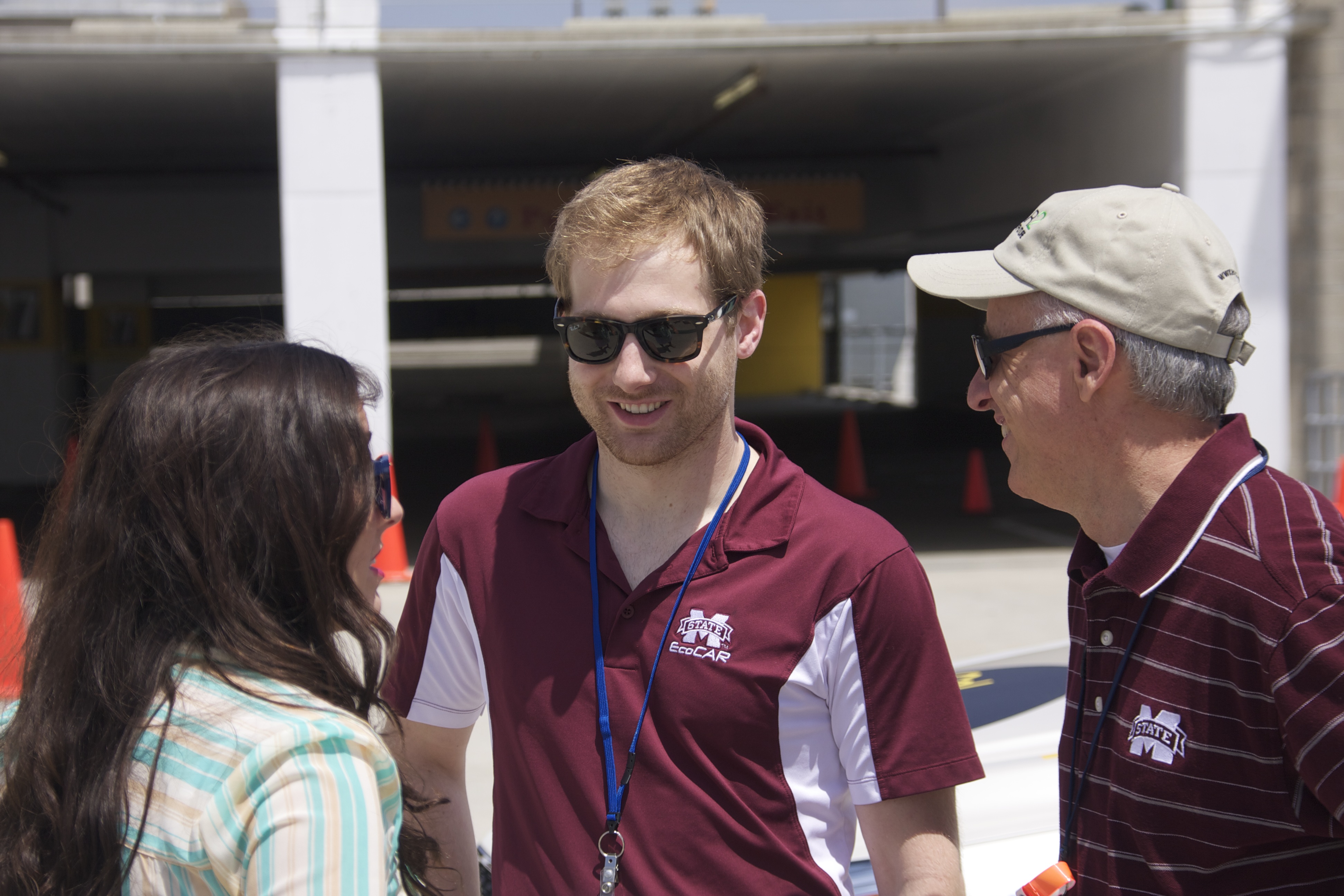Contact: Allison Matthews

Mississippi State's EcoCAR 2 team is bringing home several awards from year two of a highly competitive three-year advanced automotive engineering challenge.
The year one champion team suffered a set-back this week when an internal mechanical breakdown led the team to drop the entire drive train out of their vehicle to repair the damage. By reassembling the vehicle within a 10-hour timeframe, students demonstrated a Bulldog can-do spirit, said David Shaw, MSU vice president for research and economic development.
Shaw and MSU Provost and Executive Vice President Jerry Gilbert flew to San Diego earlier in the week to visit the team during competition.
"The design of the MSU EcoCAR 2 was one of the most creative and innovative in the competition," Gilbert said. "Their bold design earned them the respect of many industry representatives and other teams as well."
After six days of rigorous vehicle testing in Yuma, Arizona, the competition continued this week in San Diego. MSU's team earned awards for Best Controls Presentation; Best Communications Presentation; 1st place dSPACE video award; 3rd place overall business program; and 3rd place Mathworks Modeling award.
The team placed fifth overall out of 15 competitively selected collegiate teams from universities across North America competing to reduce the environmental impact of a Chevrolet Malibu without compromising performance, safety or consumer acceptability. Pennsylvania State University was named the year two winner.
"It was very exciting and a true honor to be in San Diego with the EcoCAR 2 team. Our students were universally respected and viewed as some of the best in the competition. Every person at MSU would have been extremely proud to see how well they represented our university. Their hard work and professional demeanor truly defined what it is to be True Maroon," Gilbert said.
Shaw added that the MSU team gave outstanding presentations on both the technical aspects of their design and the business and communication plans.
"The design our team has this year is a major engineering challenge. They have demonstrated its viability, and we expect them to do exceptionally well in the final year of competition," Shaw said.
The third and final year of "EcoCAR 2: Plugging In to the Future," will be held in Washington, D.C., in May 2014.
The first year of competition focused on computer-based modeling and simulations to test the teams' design ideas, and the 2013 challenge tested the implementation of those designs. Now, the team will embark on meticulous efforts to refine their work in preparation for year three competition.
Gilbert said faculty sponsor Marshall Molen again mentored another team of world-class students who proved that MSU is second to none.
"It was obvious that our students had done their best. They truly shined," Gilbert said.
EcoCAR 2 is the latest three-year collegiate advanced vehicle technology competition sponsored by the U.S. Department of Energy and General Motors. Managed by Argonne National Laboratory, the competition evaluates how teams meet technical goals designed to support industry's need for engineers well versed in advanced vehicle propulsion. In preparing their team's car, students incorporate lightweight materials into the vehicles, improve aerodynamics, and utilize alternative fuels, such as ethanol, biodiesel and hydrogen.
The goals are to design and integrate vehicle powertrains that, when compared to the production gasoline vehicle, reduce petroleum energy consumption on the basis of a total fuel cycle analysis; reduce fuel consumption; reduce well-to-wheel and greenhouse gas emissions; and reduce criteria tailpipe emissions.
For more information about Mississippi State University, see www.msstate.edu.